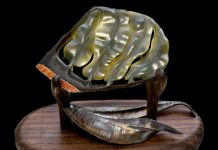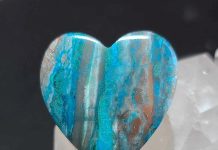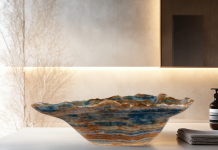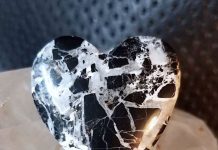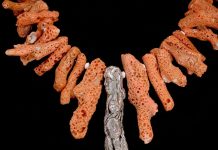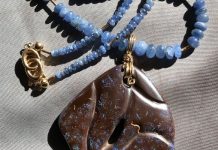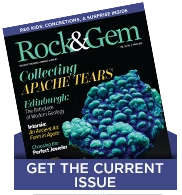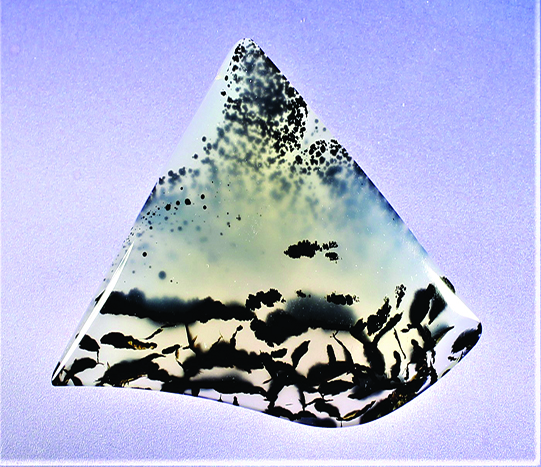
By Bob Rush
I am always on the lookout for rare or hidden beauty in common agates. One of my favorite lapidary materials is Montana agate because it is commonly present at most gem and mineral shows. There are multiple ways to bring out the stone’s beauty simply by how we orient the patterns. I try to find pieces without obvious or easily seen patterns. The patterns that are somewhat hidden or overlooked are what I seek.
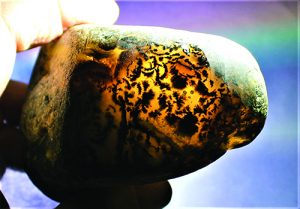
A common characteristic found in Montana agates is a fractured outer skin. This condition is the result of untold time spent bouncing around a river bottom during heavy flow. These fractures are visible on the surface of agates, but you need to grind or sand the surface to see how extensive and deep the fractures go. It’s often easy to see whether fractures are present by holding the rough rock up to bright light. The fractures usually don’t go much deeper than 1/8 to 1/4 inch in depth.
As I was recently digging through a pile of left-over pieces from my trim, I came across a scrap from a Montana agate slab. It exhibited a spotted pattern from the inside of the rock and presented small fractures on the rock’s skin. I decided to explore these patterns so that I could include them in a cabochon. The fractured skin often has open areas extending to the surface, and they are usually filled with red or brown iron stains. Directly below and sometimes intermingled with these open fractures is a healed (sealed) black filled fractures layer. Their pattern is often very dark, intricate, and striking.
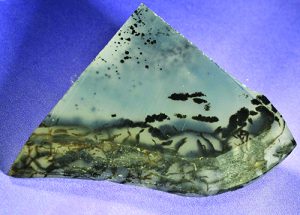
The main challenge to overcome when working with Montana agate is grinding down through the brown open fractures to expose the healed black patterns. The area where the open and sealed fractures intermingled can be so thick that you end up grinding through the desirable black pattern.
In the piece of Montana agate pictured, the intermingled fracture area was thin, so I could get the open fractures ground out before breaking into the sealed black sections. I was also able to get the internal pattern on the top of the cab to show well. I followed the curvature of the outer skin with the fractures. At an angle to the cabochon’s bottom, I used a small Mizzy wheel and carved a recessed edge in the fracture area though its presence doesn’t show in the photo. I was fortunate that the open fractures ended up being shallow in this piece.
Author: Bob Rush
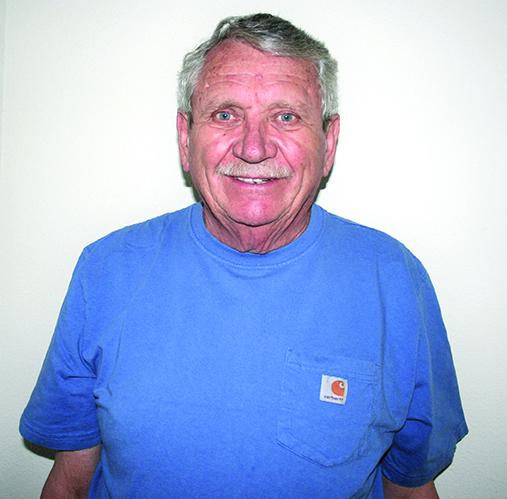 Bob Rush has worked in lapidary since 1958 and metal work and jewelry since 1972.
Bob Rush has worked in lapidary since 1958 and metal work and jewelry since 1972.
He teaches at clubs and Modesto Junior College. Contact him at rocksbob@sbcglobal.net.
If you enjoyed what you’ve read here we invite you to consider signing up for the FREE Rock & Gem weekly newsletter. Learn more>>>
In addition, we invite you to consider subscribing to Rock & Gem magazine. The cost for a one-year U.S. subscription (12 issues) is $29.95. Learn more >>>


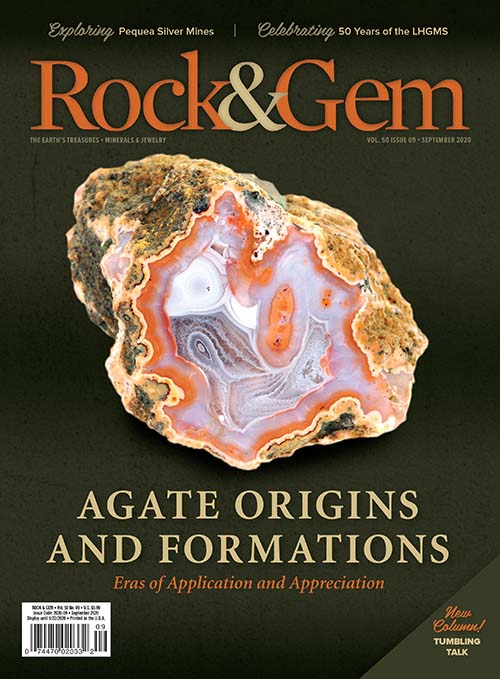 Hide i
Hide i